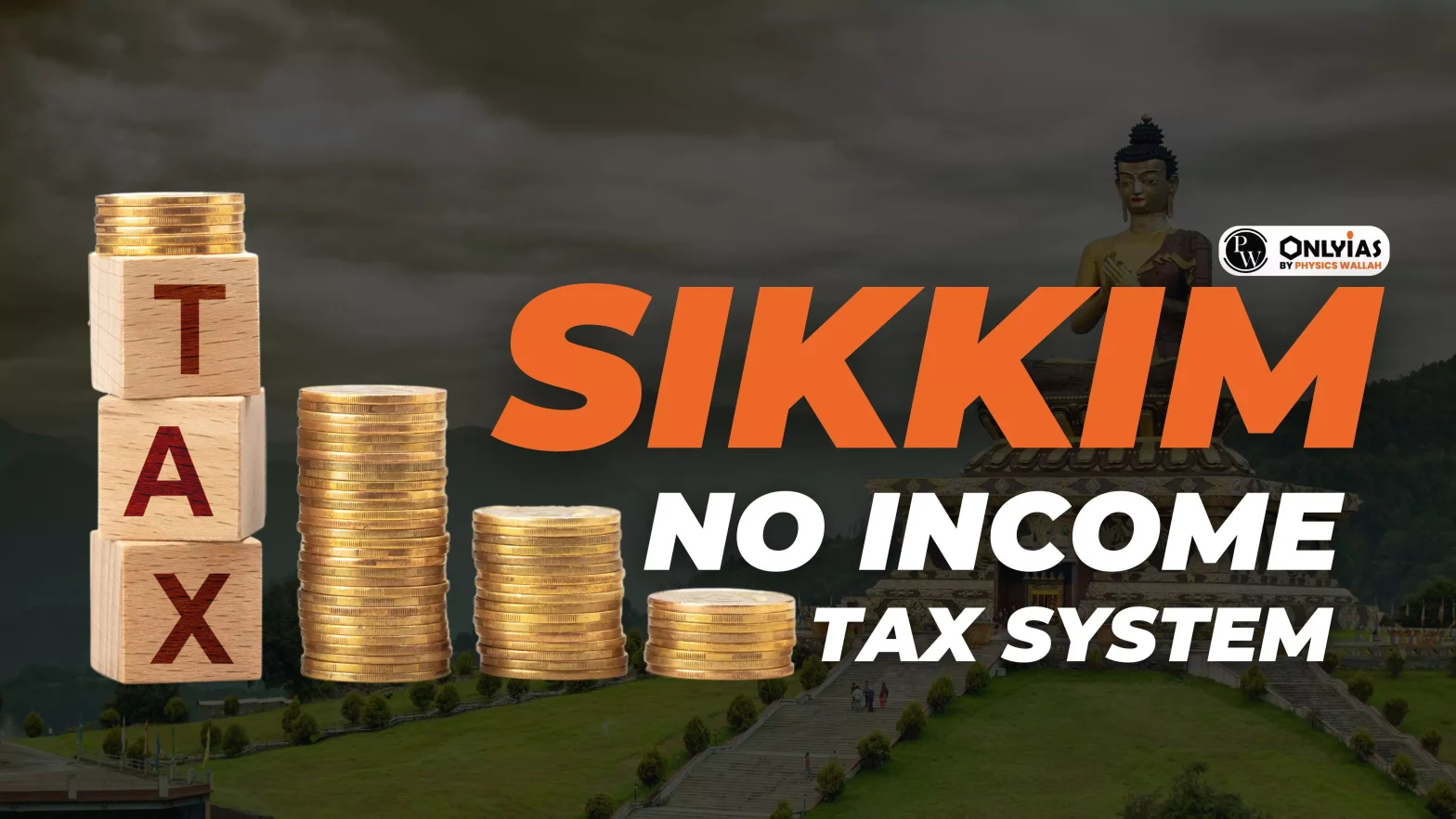Sikkim No Income tax system is becoming trending in the market after the Union Budget was released. Learn more about Sikkim No Income tax system and why is it a tax-free state?

Sikkim No Income tax system has become a hot topic after Union Budget 2024 as people are planning to shift over their due to it’s no income tax system. Sikkim, a northeastern state in India, holds a unique status when it comes to income tax. Unlike the rest of the country, residents of Sikkim are exempt from paying income tax. This special provision has historical roots and continues to offer significant financial relief to the people of Sikkim. Here’s an in-depth look at why Sikkim enjoys this unique tax exemption and what it entails.
Sikkim was an independent kingdom in the eastern Himalayas until it became the 22nd state of India on May 16, 1975. As part of the merger agreement, the Indian government promised to preserve Sikkim’s existing laws and special status. This included the tax laws established under the Sikkim Income Tax Manual of 1948. Consequently, the residents of Sikkim retained their tax exemption even after becoming a part of India.
Why is Sikkim Tax Free?
Sikkim is tax-free due to historical agreements and constitutional provisions established during its merger with India in 1975. Here are the key reasons why and when Sikkim income tax rules were set:
These provisions ensure that Sikkim residents are not subject to the same income tax laws as the rest of India, maintaining their financial autonomy and historical privileges.
To uphold the historical agreement and respect the merger terms, Article 371F was introduced into the Indian Constitution. This article grants special protections and privileges to the residents of Sikkim, including the exemption from income tax.
The primary legal provision that ensures the tax-free status for Sikkim residents is Section 10(26AAA) of the Income Tax Act. According to this section, income earned by Sikkimese individuals from sources within Sikkim or from dividends and interest on securities is exempt from income tax. This exemption is exclusive to individuals defined as “Sikkimese,” which includes those domiciled in Sikkim before its merger with India .
In 2008, the Union Budget reaffirmed this tax exemption by repealing Sikkim’s previous tax laws. Further, in response to legal challenges, the Supreme Court directed amendments to include all Indian citizens domiciled in Sikkim as of April 26, 1975, under this tax exemption. This broadened the scope, allowing more residents to benefit from the exemption.
The Sikkim no income tax system provides significant financial relief to its residents, ensuring that they do not have to contribute a portion of their earnings to the central government. This is particularly beneficial for the local economy, as it allows residents to retain more of their income.
Economic and Social Impact
The tax exemption has a positive economic impact on the state, attracting investments and fostering economic growth. It also helps in maintaining social stability by reducing the financial burden on residents.
Sikkim Income Tax Rules and Exemptions
Residents of Sikkim are exempt from paying income tax on earnings generated within the state, as well as on dividends and interest on securities. This unique provision is a significant deviation from the standard income tax rules applicable in the rest of India.
To qualify for the tax exemption, individuals must meet the criteria set forth in Section 10(26AAA), which includes being a resident of Sikkim and domiciled there before the merger with India. The amendment to include all Indian citizens domiciled in Sikkim as of April 26, 1975, further broadens the eligibility.
The Sikkim no-income tax system is a unique provision that offers significant benefits to its residents, maintaining the state’s historical legacy and supporting its economic stability.
Enroll in our UPSC PW Online Coaching to get expert and the best resources prepare for UPSC Mains.
| UPSC Mains 2024 Related Articles | |
| UPSC CSE Mains 2024 | UPSC Mains Exam Pattern 2024 |
| UPSC Mains Syllabus 2024 | UPSC Mains Previous Year Papers |
| UPSC Mains Admit Card 2024 | UPSC Mains Previous Year Cutoff |
Sikkim is exempt from income tax due to historical agreements during its merger with India, preserved under Article 371F of the Indian Constitution.
Sikkimese individuals domiciled in the state before its merger with India and those domiciled by April 26, 1975, as per Section 10(26AAA) of the Income Tax Act.
Income earned within Sikkim and from dividends and interest on securities is exempt from tax for eligible residents.
The tax exemption provides financial relief to residents, attracts investments, and fosters economic growth within the state.
Yes, in 2008, the Union Budget reaffirmed the exemption, and the Supreme Court extended it to include all Indian citizens domiciled in Sikkim as of April 26, 1975.
<div class="new-fform">
</div>